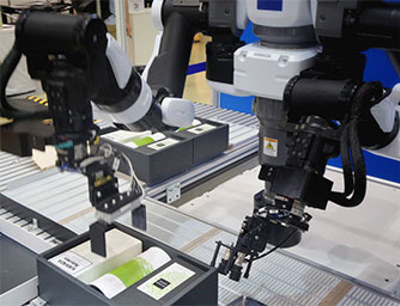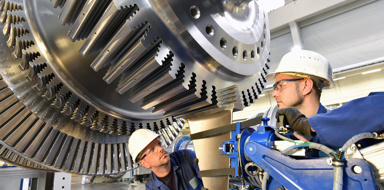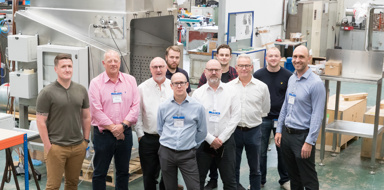
Data is the lifeblood of digital transformation and enables manufacturers to reap a raft of benefits.
In my previous blog - Embracing change: The case for digital transformation - we explored the key steps SME manufacturers should take towards a successful and sustainable digital transformation: digitising information, digitalising processes, and sewing a digital thread through the whole business.
Visibility of real-time data can give valuable insights that they use to increase the efficiency of their operations, make cost savings, improve competitiveness and create greater opportunities for scalability and growth potential. Replacing manual methods with automation also increases productivity, precision, consistency and quality.
Here we look at six ways manufacturers could benefit from digital transformation.
Optimisation
By implementing sensor technology, manufacturers can capture performance data from machinery, allowing them a clear view of operations. They can then use the information gathered to improve efficiency, productivity and quality control. The gathered data can also be used to perform predictive maintenance, allowing for better planning, limiting downtime caused by machine breakdowns and keep a factory up and running.
Tackling the Labour Shortage
With around 70,000 vacancies, the manufacturing sector suffers from labour shortages. This puts significant pressure on SMEs to sustain operations and plan for growth. Digitalisation enables low-skilled, manual and often repetitive tasks to be replaced with automation. This allows for existing team members to be upskilled into more high value and fulfilling roles.
Improving Safety
While workplace injuries are on the decline, automation is proving a tool for improving safety further. Manufacturers can leave laborious, dangerous tasks to robots rather than risk their workforce.
Retaining and Recruiting Staff
Digital transformation offers the opportunity to overcome the age-old view that manufacturing is a low-skilled sector. The introduction of data-driven decision-making and advanced technologies will make the industry more attractive for the next generation of workers, as well as retaining existing staff.
Fast-track Innovation and Reduce Time to Market
Real-time data accelerates a manufacturer's ability to learn and adapt to changing customer needs and market demands. This information can be used for R&D of new and improved products. Meanwhile, digital tools such as Additive Manufacturing, known also as 3D printing, enable rapid prototyping and testing of ideas and concepts, before launching to the market, as well as the ability for mass customisation and end use parts.
Improving Sustainability
Digital transformation is also an opportunity to transition to more green methods of manufacturing and realise net zero ambitions. Digital technology enables manufacturers to streamline operations, reduce waste, and eliminate inefficiencies, improving their sustainability credentials and doing their bit towards the UK’s net zero goals.
How Made Smarter can help
Successful digital transformation is not just a matter of implementing new technology.
In order to create meaningful, lasting change within your business, leaders need to consider the impact on their whole business.
Taking that first step can seem overwhelming. But every journey starts with the first step, and that’s what Made Smarter has been designed to help with.
For more information download the Digital Transformation whitepaper today.





